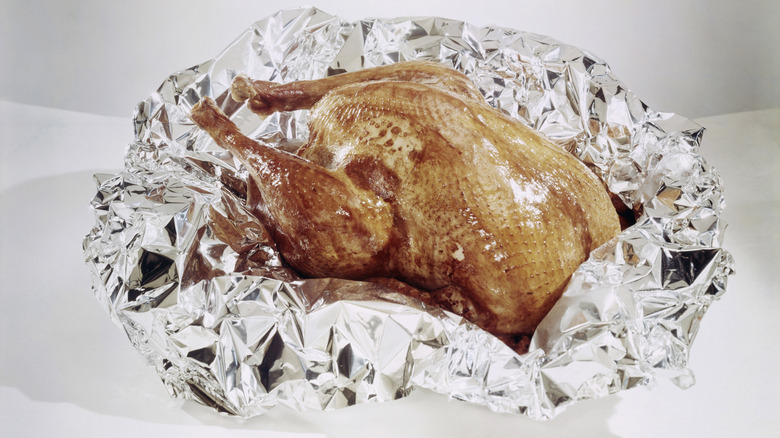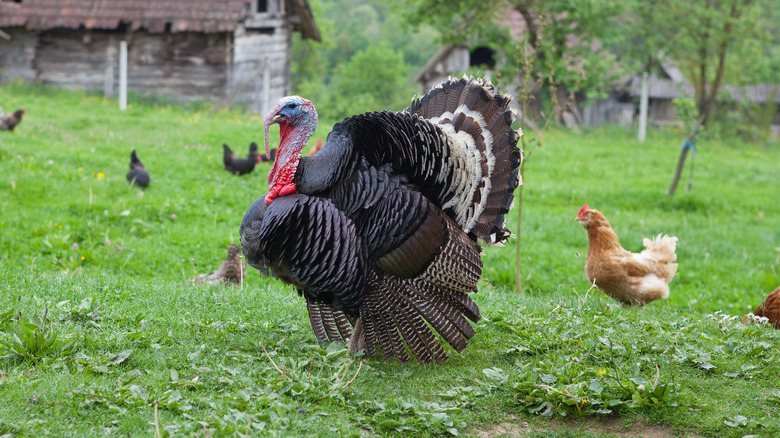The Guinness World Record For The Heaviest Turkey
Despite the avian flu that's causing turkey prices to skyrocket on top of existing inflation rates this year, an overwhelming number of Americans are planning on going big or going home for their holiday bird on November 24. Butterball, which touts itself as "the best known and most loved brand of turkey in the United States," found in its annual outlook report that 90% of participants plan to buy a turkey that's either the same size or larger than last year's (per PR Newswire).
Is it a built-in spirit of competition and showmanship that makes home cooks want to boast beefy birds to their dinner guests, or do people just love the idea of endless leftover turkey sandwiches? Whatever the case, this year's Turkey Day feasts are poised to see more heavy gobblers than Cornish game hens. But if you think America is the only place that can breed hulking poultry, think again. The Guinness World Record for the heaviest turkey in all the land is actually held across the pond.
Tyson the 86 pound turkey
According to Guinness, the World Record for the heaviest-dressed turkey has been unmatched since 1989. It goes to a gobbling gentleman named Tyson, who weighed a whopping 86 pounds. Guinness writes that he was sold at auction for charity in London that year for £4,400, or $6,692. He was reared by Philip Cook of Leacroft Turkeys Limited in Peterborough, United Kingdom.
In 2017, the Buffalo Zoo posted a video of their own resident Tyson turkey as he gobbled happily alongside his friend, Candyann the mule. He wasn't quite as large as his record-winning namesake, nor was he used as a Thanksgiving centerpiece, but we have no doubt that both he and his predecessor were named after former professional boxer Mike Tyson.
In 2014, the American Society for the Prevention of Cruelty to Animals told Mother Jones that the average turkey clocked in around 13 pounds in the 1930s and that turkey farms now raise birds that are more than double that size. The outlet adds that larger birds also tend to be more susceptible to illness, which might explain the current Highly Pathogenic Avian Influenza going around on U.S. turkey farms.

